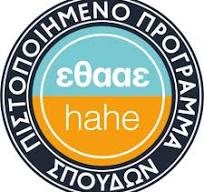Learning outcomes of the course unit
It is a basic introductory course on the European Union and its policies in the tourism sector.
The content of the course aims to introduce students to the basic concepts and institutions of the European Union, and moreover to provide wide knowledge on policies that directly or indirectly affect tourism. Upon completion of the course students will be able to:
- to know the stages and the historical evolution of the European Union
- to understand the institutional role of the European Unions Institutions
- to describe and evaluate the role of the European Union in the sector of tourism
- to analyze basic practices of the EuropeanUnion emphasizing on tourism development
- to use statistical data from the European Union for policy making
Course contents
Historical evolutionof the EU law. Institutions of the European Union, with emphasis on those with jurisdiction in tourism. Tourism in the European Union. Free provision of services within the European Union, with emphasis in tourism. Provision of conducted tour services. Travel packages. Free provision of services in maritime tourism cabotage. Specific tourism issues in the European Union (Eco-label, organized tours). Air transports in the European Union. The statisticsoftourism in the European Union.
Planned learning activities and teaching methods
Lectures, case studies, written assignments
Assessment methods and criteria
Exams 70% and awritten project (with oral presentation) 30%
Language of instruction
Greek and English


